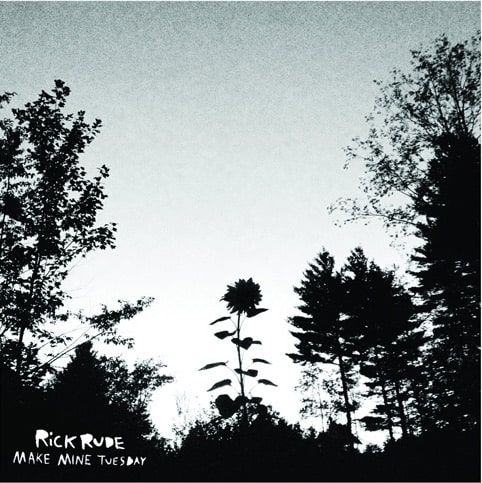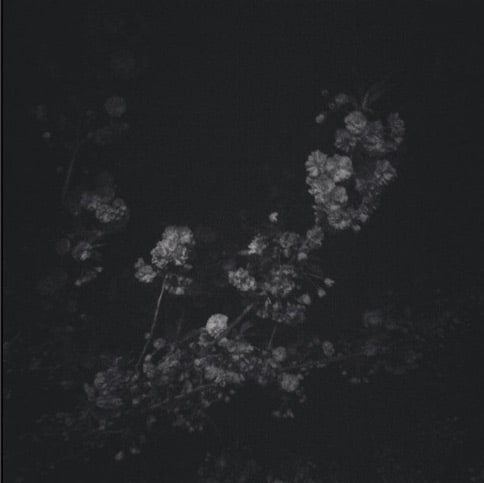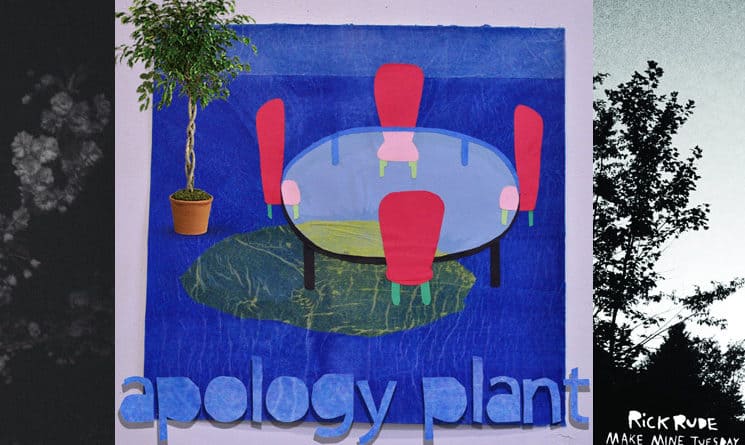“Apology Plant” by Lilith
Disposable America

Lilith’s newest EP, “Apology Plant, is as close to dreamy as you can get without actually being asleep. The ethereal, earthy tones that wash over this five-song album roll along like fog over a lake. The chill atmosphere of the songwriting creates a cool, nighttime feel for both the mellow and the melancholic.
Guitarist and vocalist Hannah Liuzzo, bassist Kelsey Francis, and drummer Alex Bourne return to the scene with their first album for the Boston-based record label Disposable America. The band’s signature indie-rock riffage and swinging rhythms harken back to alt-rock legends like Liz Phair and The Breeders. Liuzzo’s breathy, almost too-cool-for-school singing style shares the genetic trait so inherent in the DNA of Kim Deal.
This three-piece band has the ability to create songs that generate much more electricity than the standard “power trio” format. While “Apology Plant shares aesthetic elements of the lo-fi recording style, the songwriting is lofty and complex in a way that’s almost deceiving if you don’t listen closely. Liuzzo’s guitar playing builds a strong foundation for the superb contributions of Bourne and Francis, carrying the rhythm, melodies, and chords to create a music all its own.
Starting with “Loaded, “Apology Plant has the superficial appearance of three-chord-style pop, snuggly fit for mainstream radio. But that’s why the album deserves to be played at high volume. Once you hear all the moving parts (such as fingers moving up and down the frets), you can understand the complexities of the songwriting. Bourne and Francis deliver hip-swinging swagger, whitewashing their pop sensibilities with cymbals and distortion. Meanwhile, Liuzzo’s guitar goes into full effect with tiny licks, huge riffs, and solos that are as expressively emotional as they are coolly reserved.
The album comes out in February; get a preview here.
“Make Mine Tuesday” by Rick Rude
Sophomore Lounge Records and Tiny Radars

Of all the bands on the Seacoast, nobody does music like Rick Rude. Right up to their newest release, “Make Mine Tuesday, the band has perfected a cocktail blend of avant and pop that’s both arty and accessible. In the vein of alt-rock’s coolest weirdos, like Pavement, Built To Spill, and Guided By Voices, Rick Rude presents an abstract vision of the world through the vehicle of quirky, catchy rock and roll.
Released less than a year after Rick Rude’s soon-to-be-classic EP “Mind Cook, “Make Mine Tuesday” is the band’s first full-length LP since 2011’s “Heavyweights. While the songs are still very much in the distinct Rick Rude style, there is a cohesiveness to the songs that helps the album really flow like a singular unit. In contrast to “Mind Cook, which felt more like five “best of” singles stitched together in one EP, “Make Mine Tuesday is a structure built of 12 songs all molded from the same clay.
The album is a perfect Rick Rude sandwich, starting with the bread and butter of “Bald & Fat in Houston TX, which features lackadaisical twang crescendoing into noise-fueled explosion, and the low-fi home recording of “Brain Emblem. Each track features the vital elements that make up Rick Rude, like the limbs Voltron: the dueling guitar riffs and hollering, sometimes haunting vocals of Ben Troy and Noah Lefebvre; the riff-heavy bass and soothing songs of Jordan Holtz; and Ryan Harrison’s jazz-influenced drumming warped by mania.
If you’re curiosity has been piqued by the album’s title, you’re not alone. Rick Rude’s ability to write clever, yet cryptic lyrics makes for great sing-alongs. “Bald & Fat in Houston TX,” sung confidently by Troy, is abstract alliteration that still manages to tell a story. “Sunhead,” on its surface, is a catchy single tucked in the college radio sphere, but upon closer examination is a song about how the song is … a song. And “Mauve Song, one of the band’s first singles circulating around the music blogosphere, is four lines of lyrics “Make way Monday / Take Tuesday back again / Make mine Tuesday / Find friends for fond of play.
Rick Rude puts on some of the most compelling live shows in the area, and you’re guaranteed to be whistling one of their tunes after the last note has been plucked on this album. Don’t miss these guys when they play on a stage or in a basement near you.
Listen to the new album here.
“Death of the Moth” by Blacklake
self-released

Underneath the dark demeanor of “Death of the Moth lies fragile beauty. From the stark transitions of the opening riff’s twee sensibilities to the hyper-overdriven thrashing of the vocals, Blacklake’s one and only album reflects the art of pure expression.
The project, bred from the brain of the late Matt Aspinwall and released late last year, presents a band fueled by raw emotion. Aspinwall’s steady melodies collide with his howling throat, belting out touching poetry followed by poignant, melodic transitions to grip your heart, like a hand holding you through the intensity of the album.
Aspinwall’s lyrics create a narrative complete with themes, concise descriptions, alliteration, and, most importantly, language that is simply poetic. On the surface, the singer is mourning his inability to save a moth before it got stuck “in between the glass and screen / Rotting silently, and grappling with the guilt that lingers over a series of days and nights.
But, placed against the backdrop of Aspinwall’s “moody pop, the album’s theme becomes more grandiose, as though putting the singer-songwriter’s hidden feelings under a microscope. Sometimes even the most fragile, weightless tragedies can send us into an emotional spiral for days. When the album’s final track, “The Deer Go Back to the Woods, explodes out of your speakers, Aspinwall yells into an overly distorted mic, “Nothing left worth saying.” He tries slowly, hesitantly, to move beyond his past and never look back.
This album is not for purists of sound engineering; you won’t hear a perfect mix. But these 14 recordings capture a real performance, the type of set you’d hear in an artspace with high ceilings and thin walls, or in a basement where the excess sound has nowhere else to go but circle around the room and fold back into itself. Or in the performer’s bedroom, where he’d allow you to listen in even before the work was fully finished. “Death of the Moth captures the heart of a true artist who we tragically lost too soon.
Give it a listen here.

